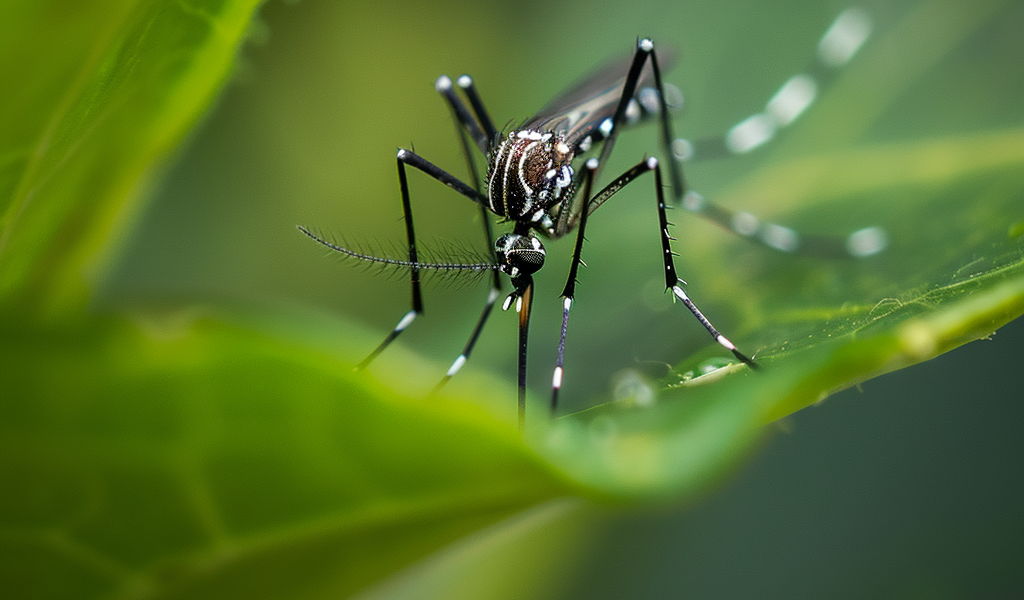An alarming rise in dengue fever cases across Europe has been linked to the presence of an invasive species of mosquito known as the tiger mosquito. According to the European Centre for Disease Prevention and Control (ECDC), this mosquito has established itself in 13 EU countries, including popular tourist destinations like France, Spain, and Greece.
The spread of the tiger mosquito is being facilitated by climate change, which is creating favorable conditions for the insect to thrive. Even cities as far north as Paris, where the upcoming Olympic Games will be held, are not immune to the presence of these disease-carrying mosquitoes.
Authorities in Europe are on high alert, with the ECDC warning that international travel could further escalate the risk of dengue fever outbreaks in the region. To combat this threat, individuals are advised to eliminate stagnant water sources in their surroundings, as these serve as breeding grounds for mosquitoes. Additionally, using mosquito repellent and installing screens on windows and doors can help prevent mosquito bites.
The Asian tiger mosquito, scientifically known as aedes albopictus, is considered one of the most invasive species of mosquitoes globally. It has successfully spread across Europe from its base in southern European countries. Countries such as Austria, Bulgaria, Croatia, Germany, and Italy have reported the presence of this mosquito, which is infamous for spreading diseases like dengue fever, chikungunya, and Zika virus.
Another concerning mosquito species, aedes aegypti, known for transmitting diseases like yellow fever, has been detected in Cyprus. Experts are worried about its potential to spread to other parts of Europe due to its preference for biting humans and its ability to transmit diseases.
Dengue fever, characterized by flu-like symptoms, can escalate into a serious and sometimes fatal condition. The number of dengue fever cases in Europe has been on the rise, with multiple outbreaks reported in countries like France, Italy, and Spain. While most cases in Europe are imported, there is a concerning increase in locally-acquired infections.
In addition to dengue fever, other mosquito-borne diseases like West Nile virus are also becoming more prevalent in Europe. Climate conditions are creating a conducive environment for mosquitoes, with reports of infections emerging as early as March in countries like Spain.
It is crucial for individuals to take preventive measures against mosquito bites, especially in regions where these disease-carrying insects are prevalent. By following simple steps like removing stagnant water and using mosquito repellent, people can help reduce the risk of mosquito-borne illnesses in their communities.





